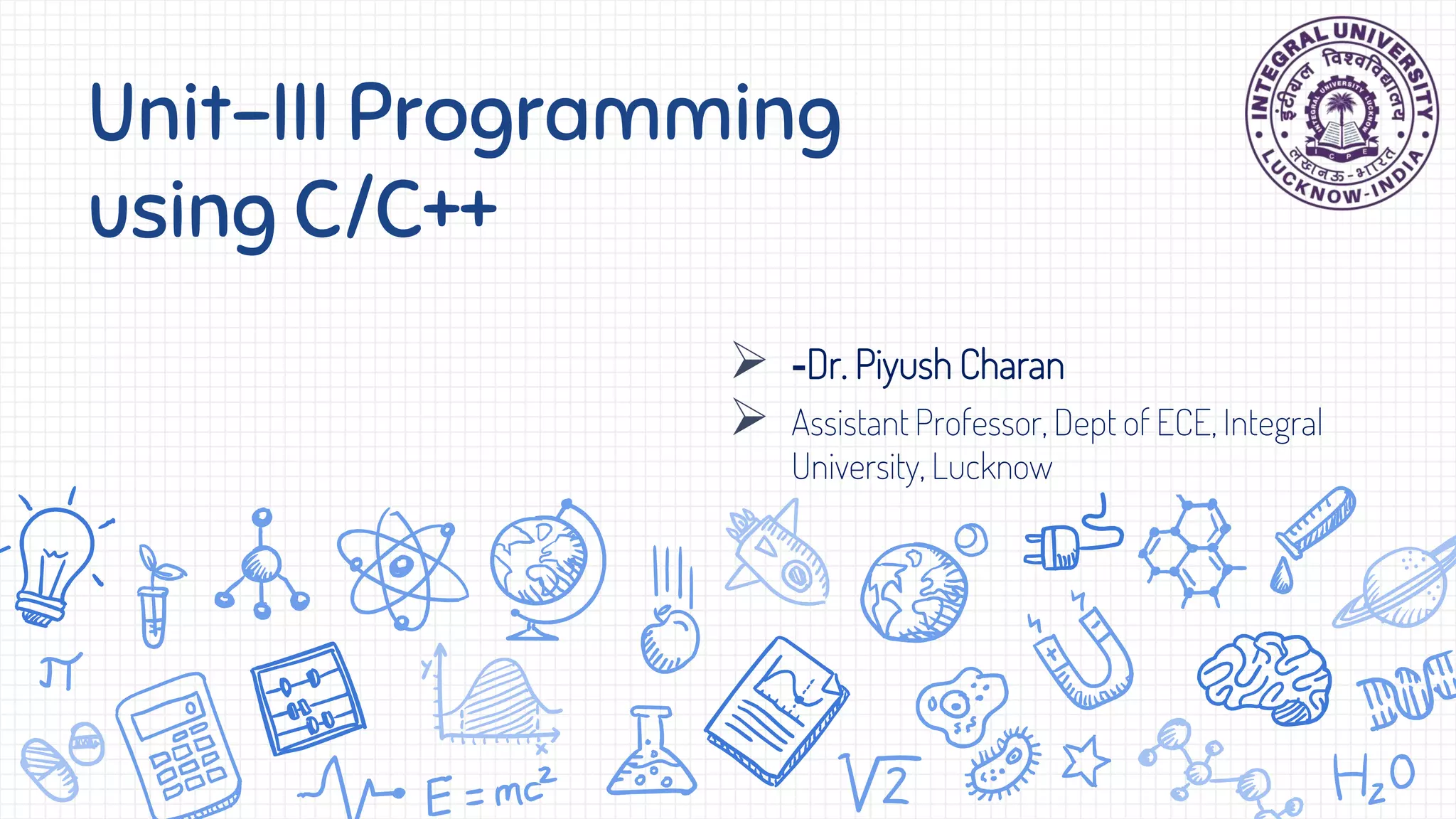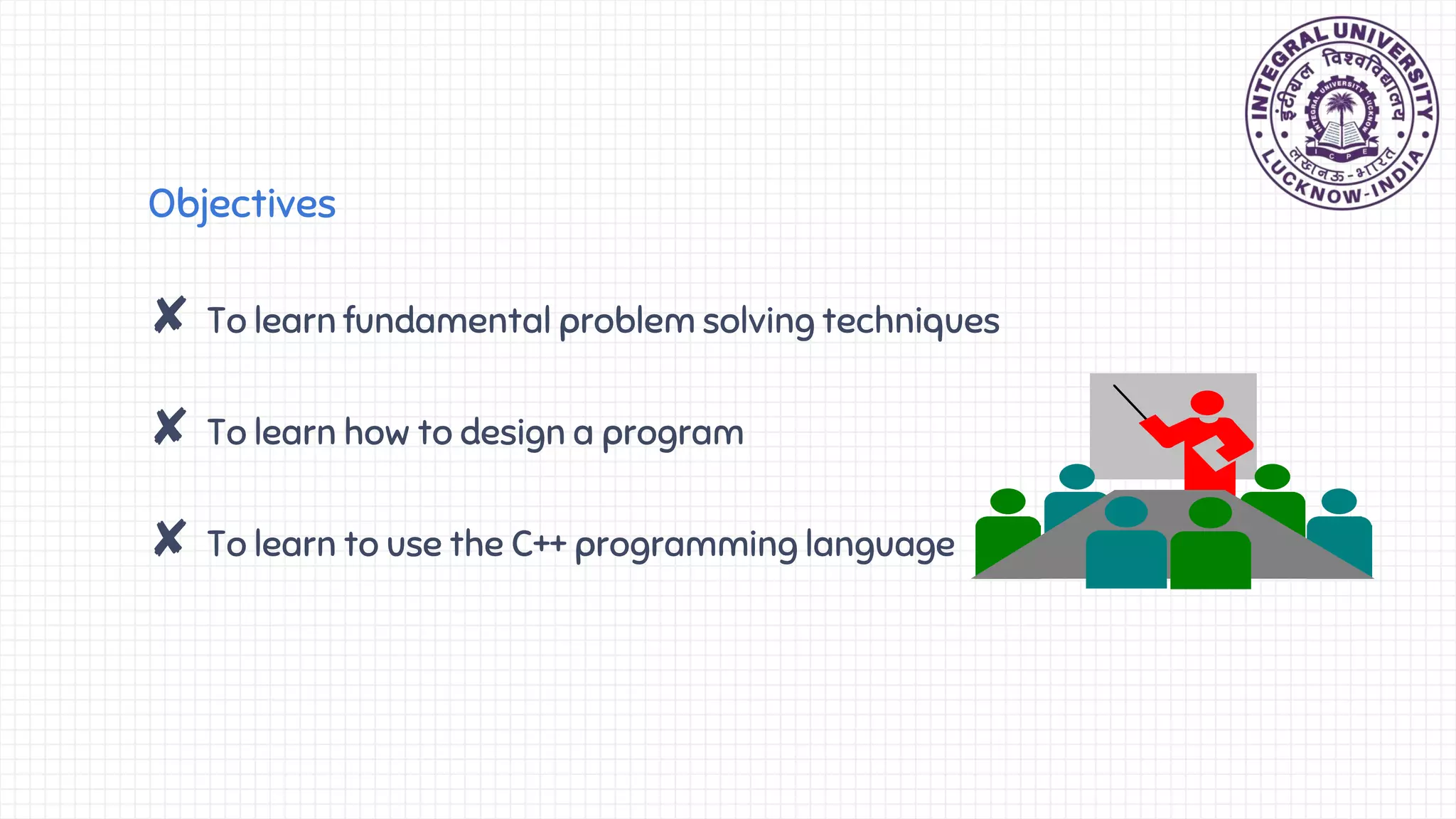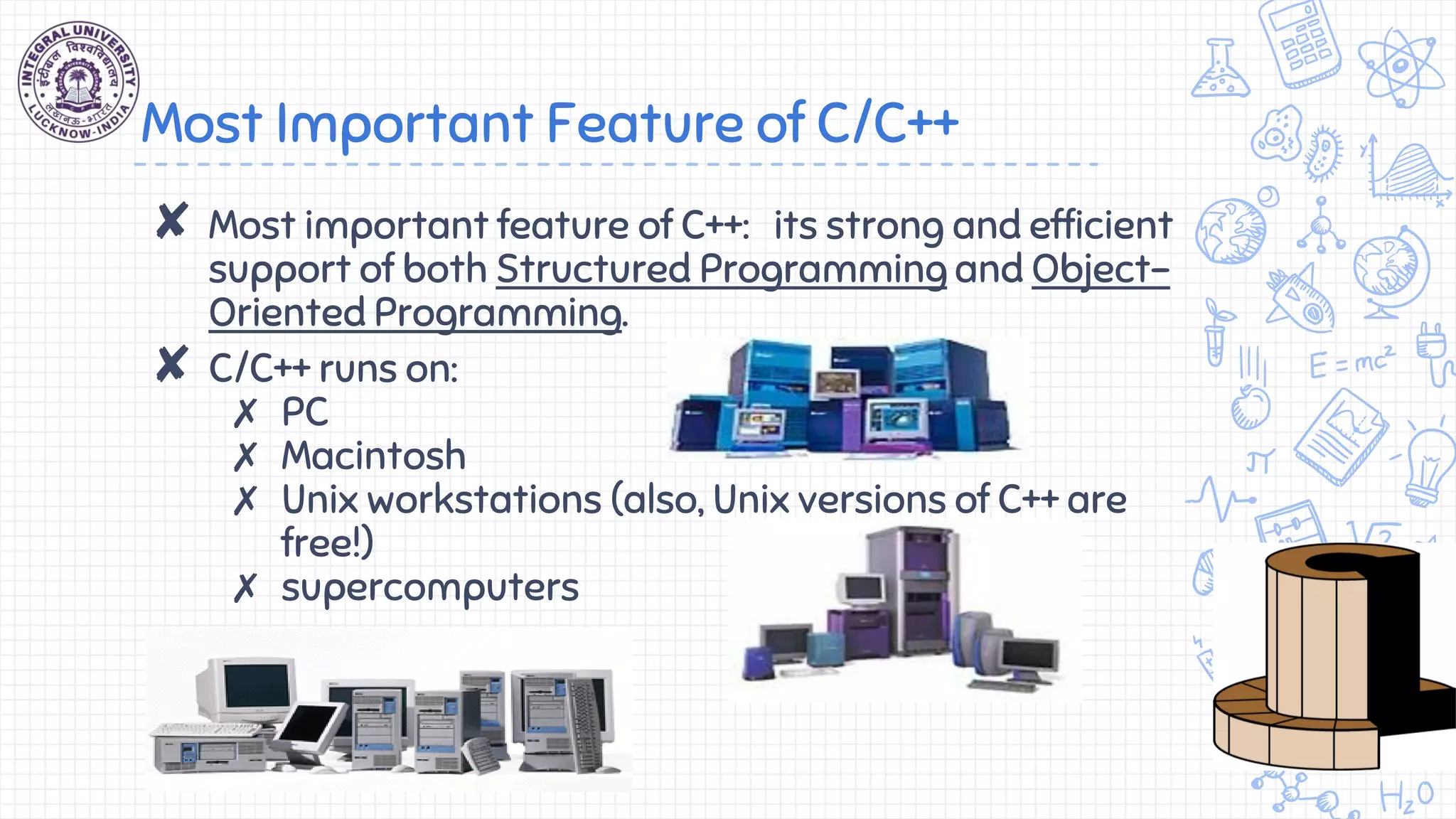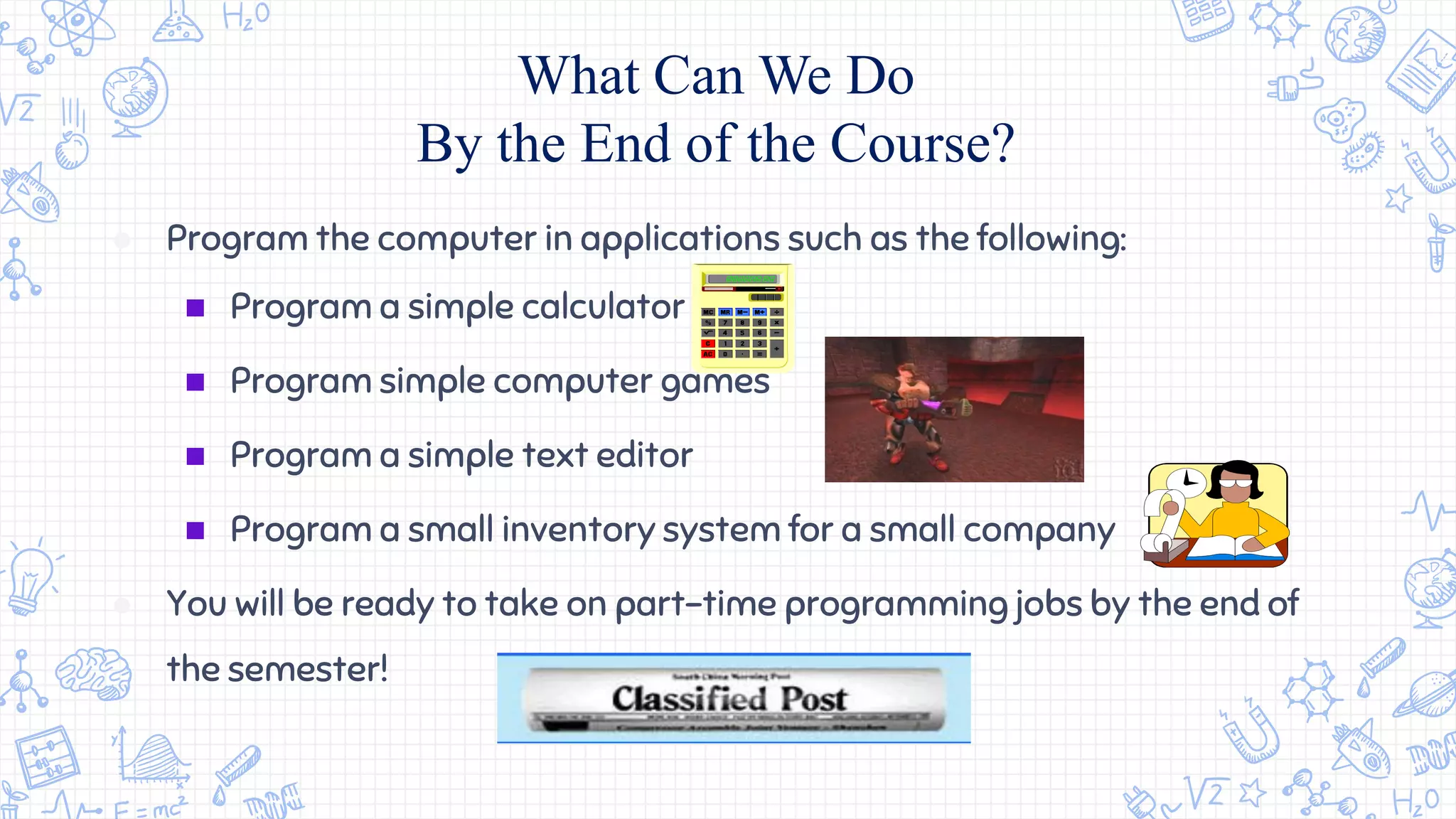This document provides an overview of unit-III programming using C/C++. It discusses the objectives of learning fundamental problem solving techniques, program design, and the C++ programming language. It then defines C++ as a programming language that allows a computer program to perform specific tasks and interact with users and hardware. It also lists some of the most popular programming languages and the most common versions of C++. The document notes that while C++ is not easy to learn, it provides good job opportunities and experience that can help with learning other languages like Java. It outlines some of the industries that use C++ and emphasizes C++'s strong support for structured and object-oriented programming across different operating systems. Finally, it describes some







